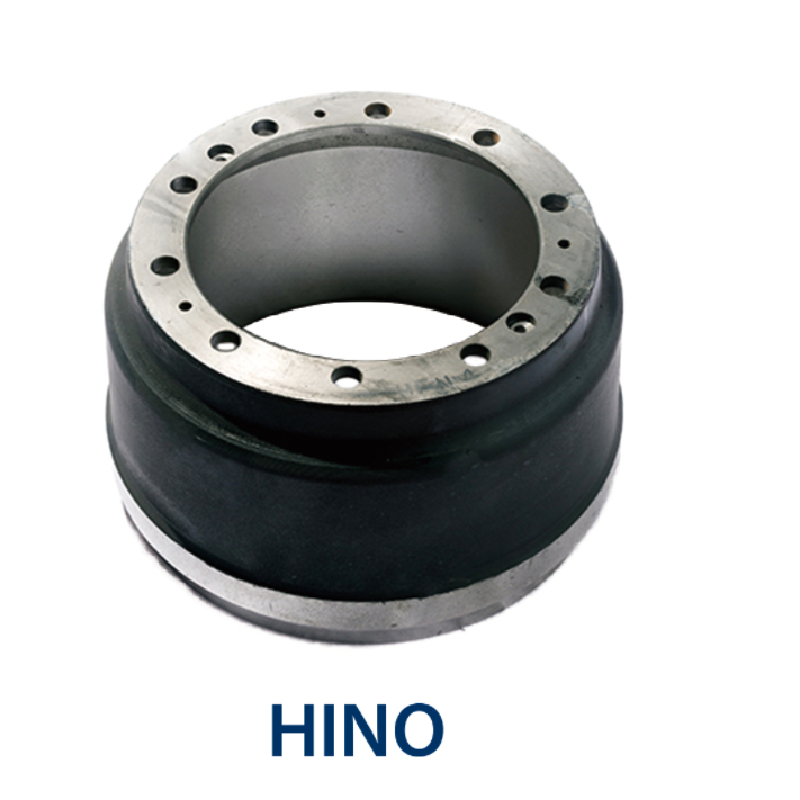Nov . 17, 2024 07:32 Back to list
what happens when brake drums get hot
What Happens When Brake Drums Get Hot?
Brake systems are critical components of vehicles, ensuring safety by allowing drivers to slow down or stop effectively when needed. One of the common types of brake systems found in older vehicles, as well as some newer models, is the drum brake system. Understanding how brake drums operate, and what happens when they get hot, is vital for maintaining vehicle safety and performance.
The Function of Brake Drums
Brake drums work in conjunction with brake shoes to slow down or stop a vehicle. When the driver presses the brake pedal, hydraulic pressure forces the brake shoes against the inner surface of the brake drum. This contact generates friction, which converts the kinetic energy of the moving vehicle into thermal energy, effectively slowing the car down. Brake drums are primarily made from cast iron or aluminum, materials chosen for their ability to withstand high temperatures and dissipate heat rapidly.
The Heating Process
When brakes are applied, they generate significant amounts of heat due to friction. Under normal circumstances, brake drums can handle this heat without issue, dissipating it into the surrounding air. However, during prolonged braking—such as when descending a steep hill or in the event of repeated hard stops—the drums can be subjected to excessive heat buildup.
Heat can be a double-edged sword. While some heat is necessary to function, too much heat can lead to a variety of performance issues. As the temperature of the brake drums rises, several things can occur.
1. Brake Fade
One of the most critical issues caused by overheating brake drums is brake fade. As the temperature increases, the materials that make up the brake shoes and drums can begin to lose their effectiveness. This reduction in friction leads to diminished braking power. Drivers may find that their brakes feel less responsive, requiring more pressure on the pedal to achieve the same stopping power. In extreme cases, prolonged heat can lead to a complete failure of the braking system, posing serious risks to safety.
what happens when brake drums get hot

Excessive heat can also lead to the warping of brake drums. When the metal heats up, it expands. If the temperature changes rapidly, such as when cold water is splashed onto hot drums, the metal can warp, leading to an uneven surface. This unevenness can result in vibrations when the brakes are applied, causing a jerky stop or a pulling sensation to one side, which can further complicate the driving experience.
3. Brake Component Deterioration
Continued exposure to high temperatures can lead to the deterioration of brake components. The brake shoes may become glazed—a condition where the surface becomes too smooth due to excessive heat, reducing friction even further. Additionally, high temperatures can damage the brake fluid, which may boil and lead to a vapor lock, where the brake system loses hydraulic pressure, rendering the brakes ineffective.
4. Increased Wear and Tear
Heat accelerates wear and tear on brake components. The constant expansion and contraction of materials can cause cracks and other forms of damage that shorten the lifespan of the brake system. This can lead to costly repairs and replacements if not addressed promptly.
Preventive Measures
To prevent overheating, drivers should be mindful of their braking habits. Avoiding prolonged braking, especially on downhill gradients, can help manage temperatures. Using engine braking—shifting to a lower gear to slow the vehicle—can also reduce the strain on the braking system. Regular maintenance, including inspections of brake components and ensuring proper brake fluid levels, can help keep the system functioning optimally.
Conclusion
Understanding the dynamics of brake drum heat is essential for safe driving. Being aware of what happens when brake drums get hot can help drivers take preventive measures to ensure their braking systems remain effective and reliable. Regular maintenance and mindful driving habits not only enhance safety but also prolong the lifespan of brake components, making for a smoother and safer driving experience.
-
Durable Brake Drum MAZ for Heavy Duty Trucks | High Performance
NewsAug.26,2025
-
FUWA: Premium Quality, Reliable Performance & Innovative Solutions
NewsAug.25,2025
-
Liza Brake Drum: Superior Quality & Performance for Safe Driving
NewsAug.24,2025
-
Iveco Brake Drum | Premium OE Quality for Daily & Eurocargo
NewsAug.22,2025
-
Your Brake Drum Man: Quality & Performance Parts
NewsAug.21,2025
-
Explore Japan: Ultimate Travel Guide & Authentic Experiences
NewsAug.19,2025
